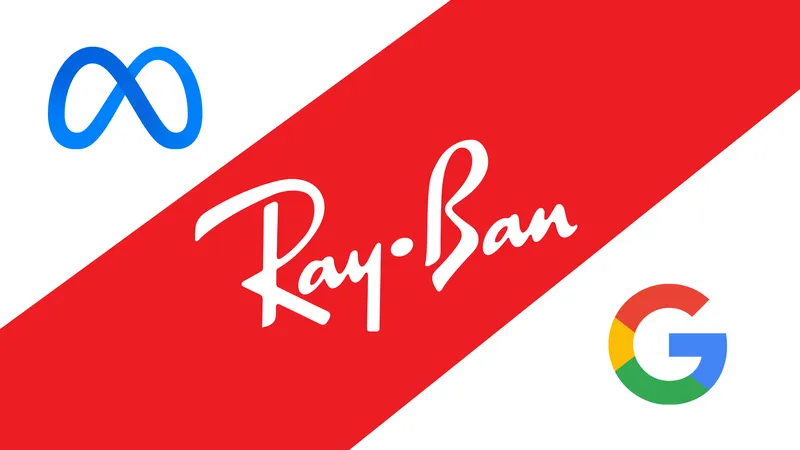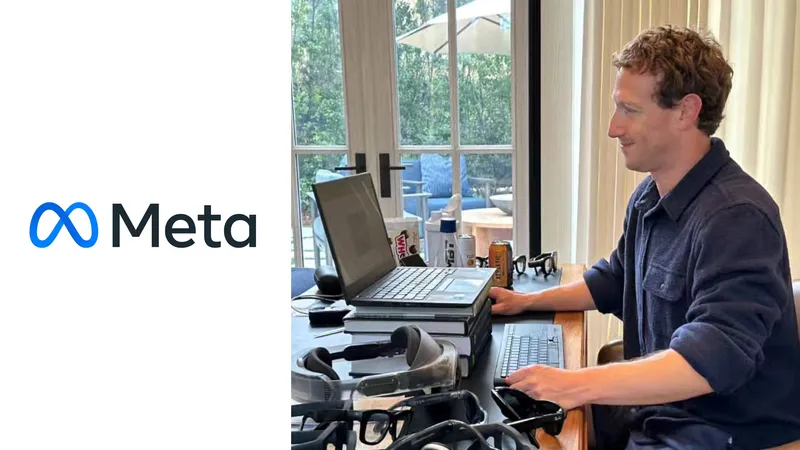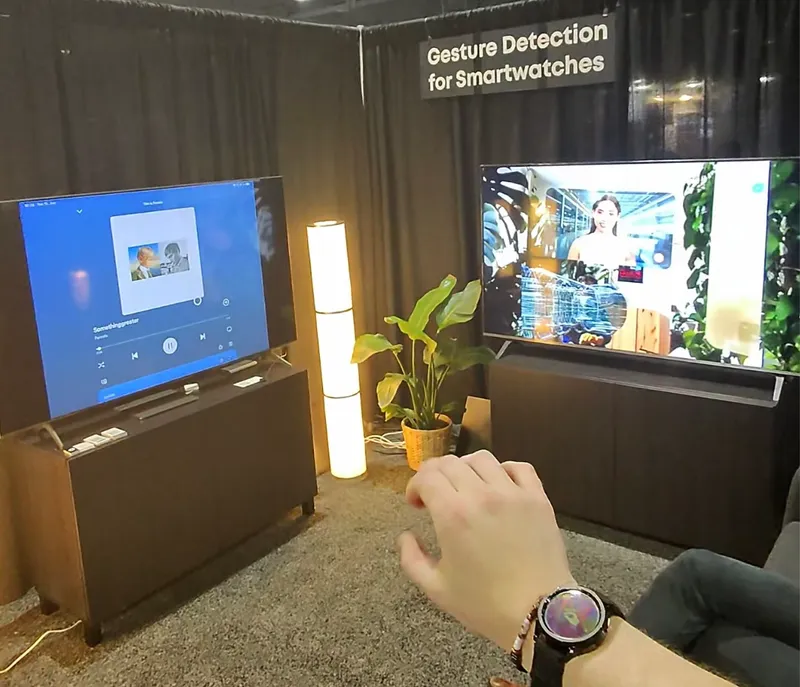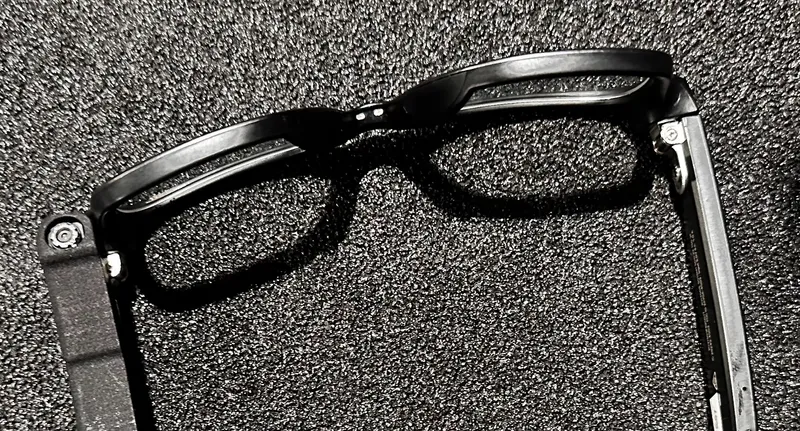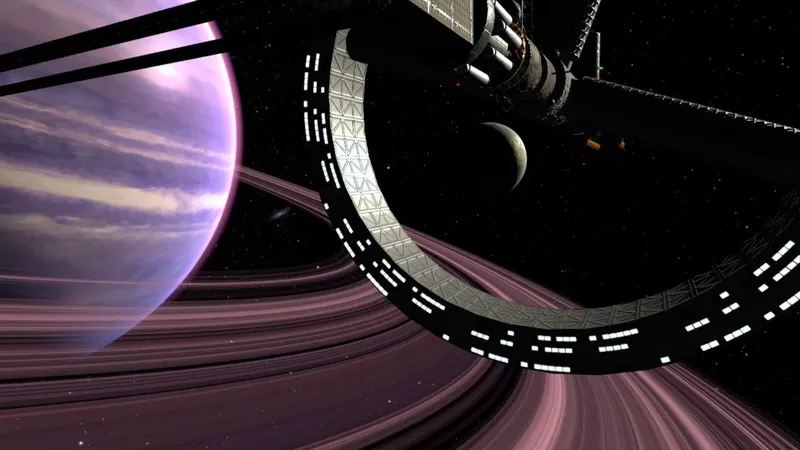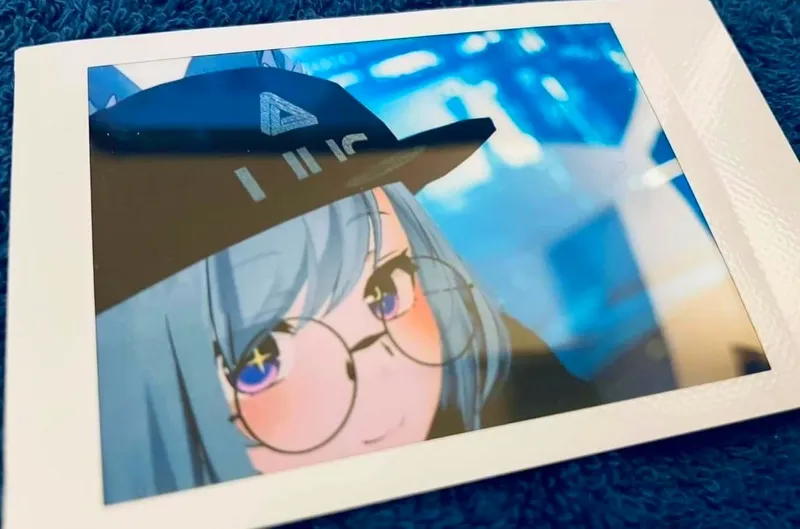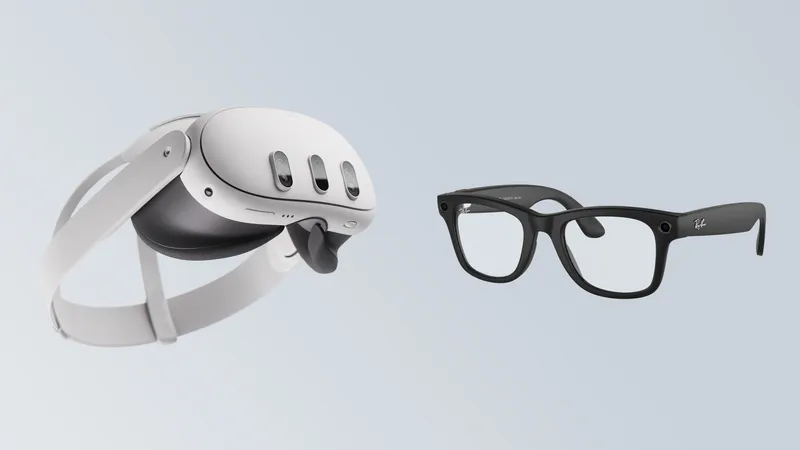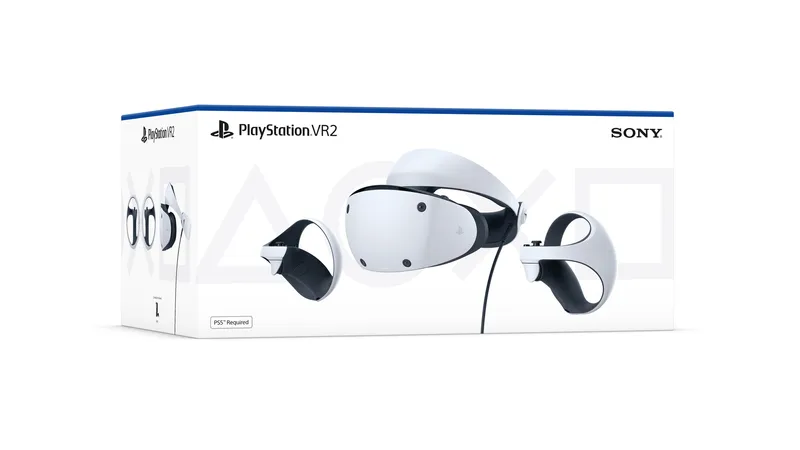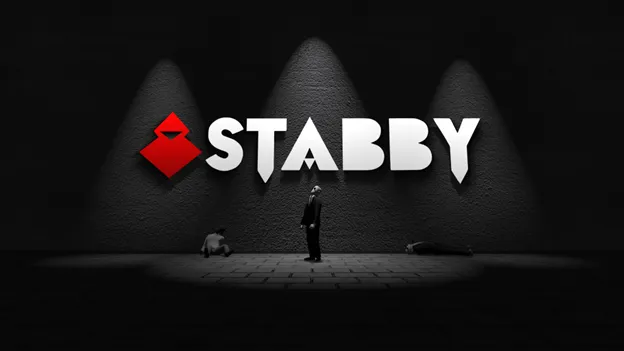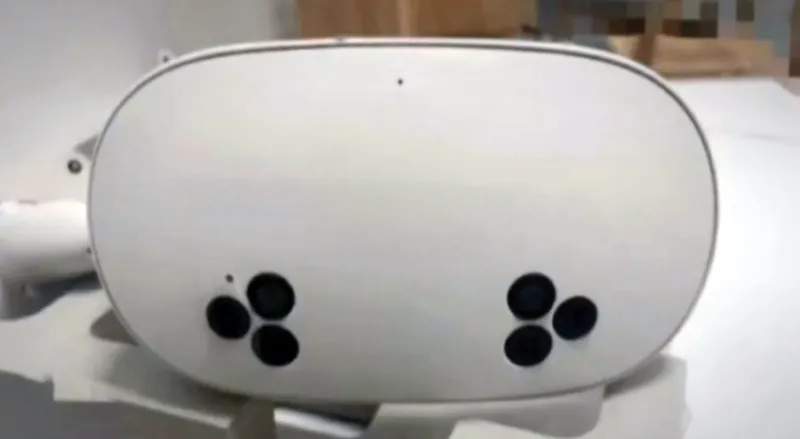Nreal Light is the first AR glasses product available in the USA, launching via Verizon.
Update November 30: Light is now available, and this article has been updated to reflect that.
Light was previously only available in Germany, Spain, Japan, and South Korea. It weighs around three times a heavy pair of sunglasses, or a third of a Magic Leap One headset. To achieve this form factor Light is powered by your smartphone over a USB cable, there is no battery or full-fledged chip onboard.
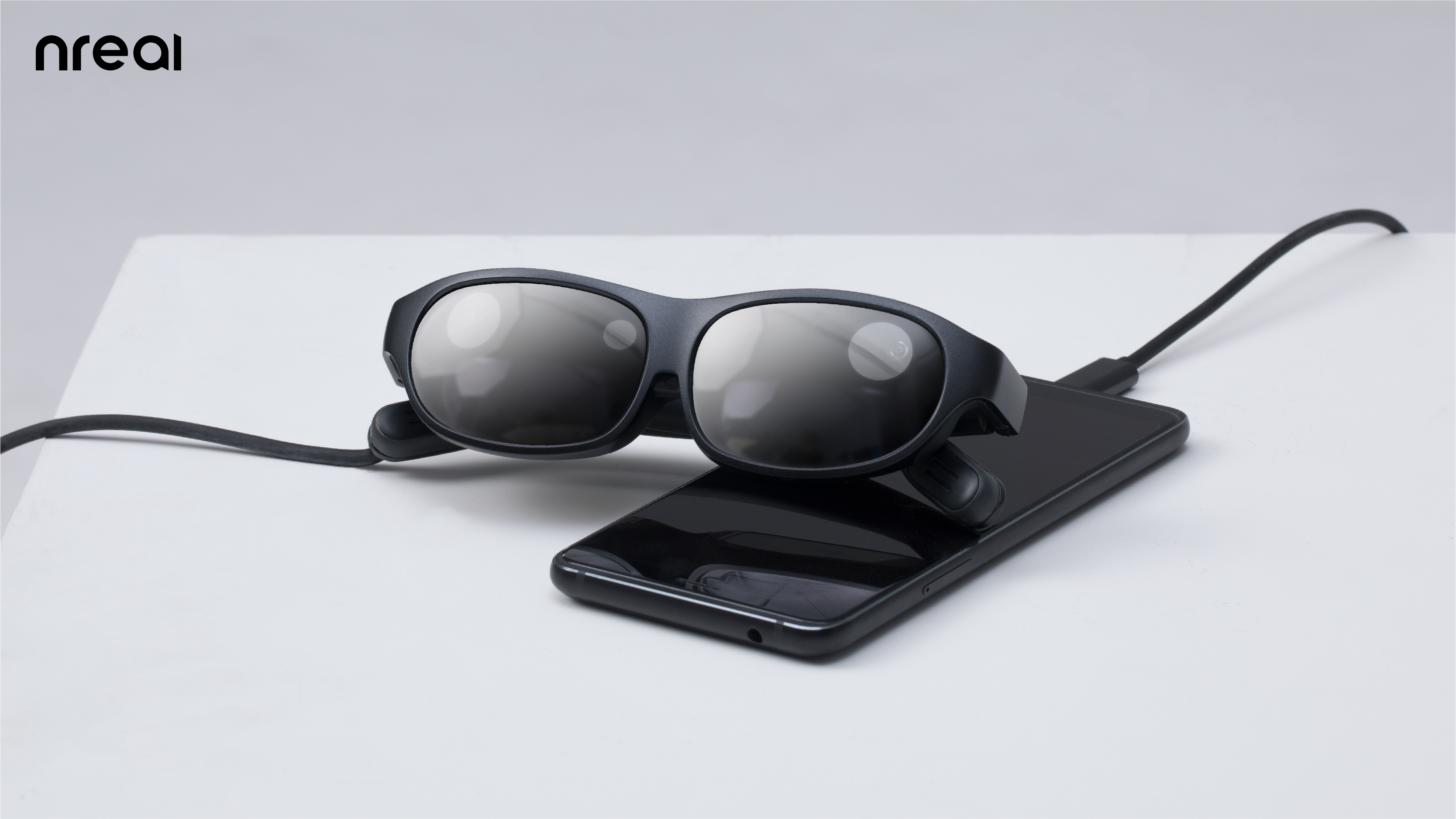
Light is priced at $599. While Nreal says you can mirror any Android or iOS device to a floating virtual screen in front of you, to use the actual augmented reality capabilities including positional tracking and AR apps you’ll need a compatible Verizon flagship device:
- Samsung Galaxy S21 Ultra 5G
- Samsung Galaxy S21+ 5G
- Samsung Galaxy S21 5G
- Samsung Galaxy Z Fold3 5G
- Samsung Galaxy S20 FE 5G UW
- Samsung Galaxy S20 5G UW
- Samsung Galaxy Note 20 Ultra 5G
- OnePlus 8 5G UW
The cheapest of these is $799, so the total buy-in price for AR if you don’t already own one starts at $1398. We’ve reached out to ask if there will be bundle deals.
Nebula is Nreal’s system software, available on the above devices. Using the phone as a tethered rotational laser pointer, Nebula lets you position running apps as floating windows in your real room. You could lie back in bed & pin a YouTube video near a wall or browse the web as a giant floating window from your couch. Though given the limited field of view, you’d want to have at least a few meters clear in front of you.
Nebula also supports 3D AR apps available from the Google Play Store including Figmin XR – though currently most apps are simple demos. Hand tracking is available in the Nreal SDK, but very few apps yet support it.
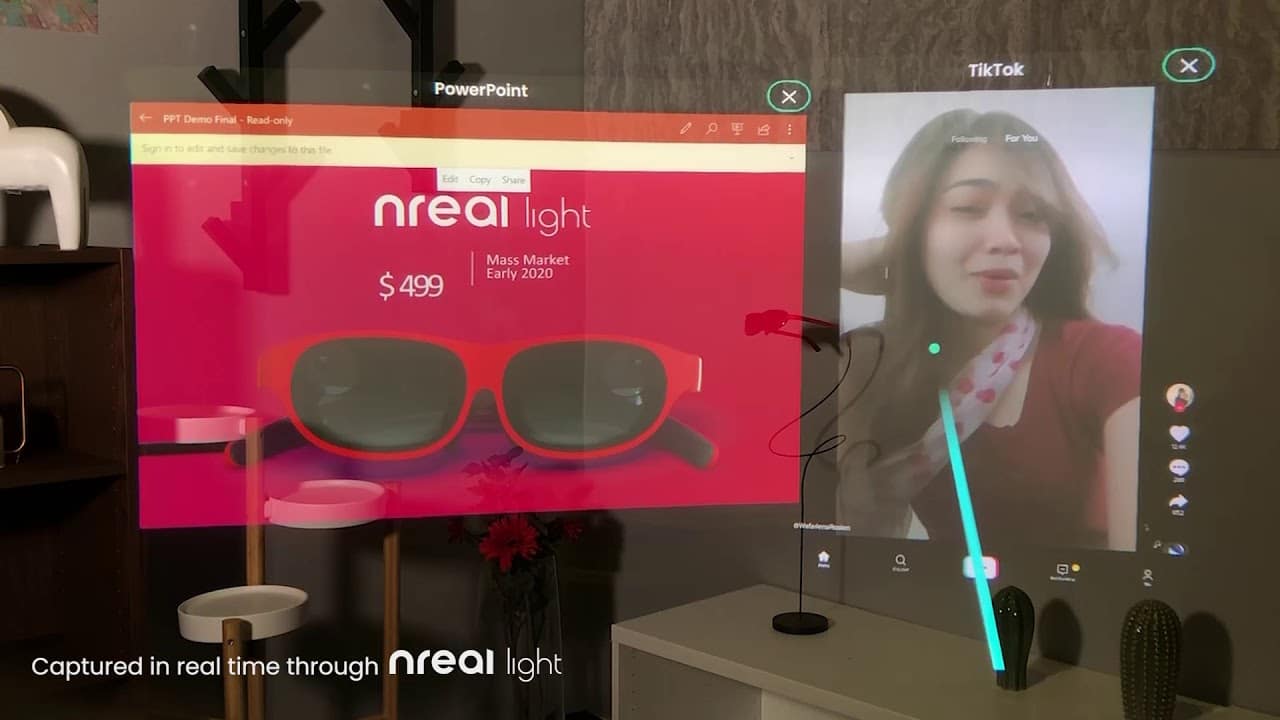
While Light and its Nebula system sound great in theory, it is important to note that AR is still in the very early stages. Glasses are a massive technological undertaking with enormous leaps in capability needed to achieve widespread consumer appeal. Nreal Light’s field of view, like all current AR products, is only 52° diagonal – around half of a typical virtual reality headset. This means that you only see digital objects and apps within a section of your view rather than all over the glass. A specific shortcoming of Nreal is it doesn’t support occlusion. If an AR system doesn’t support occlusion, it means digital objects that should be behind real world objects (eg. walls) display as if in front instead, breaking the illusion. Both HoloLens 2 and Magic Leap One support occlusion.
Sale of Nreal Light begins in-store from November 30, and online from December 2. Nreal will have a first mover advantage over Apple, Meta, Google, Microsoft and Amazon – though time will tell how much that really matters, especially given the limited device support.


